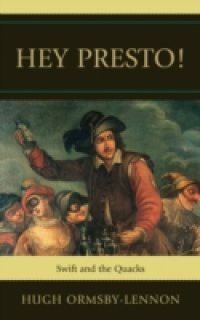Traveling 'medicine shows,' both ancient and modern, galvanized Jonathan Swift's imagination. Dubbing such multifaceted vagabond entertainments his 'Stage-Itinerant' or 'Mountebank's Stage,' Swift mimicked their argot, puffery, and slapstick in A Tale of a Tub (1704). Hugh Ormsby-Lennon reveals how the stage-itinerant not only furnished the Tale with its irresistible model but still parades that missing link, long sought, which conjoins the dual objects of Swift's ire: 'gross Corruptions in [both] Religion and Learning.'

